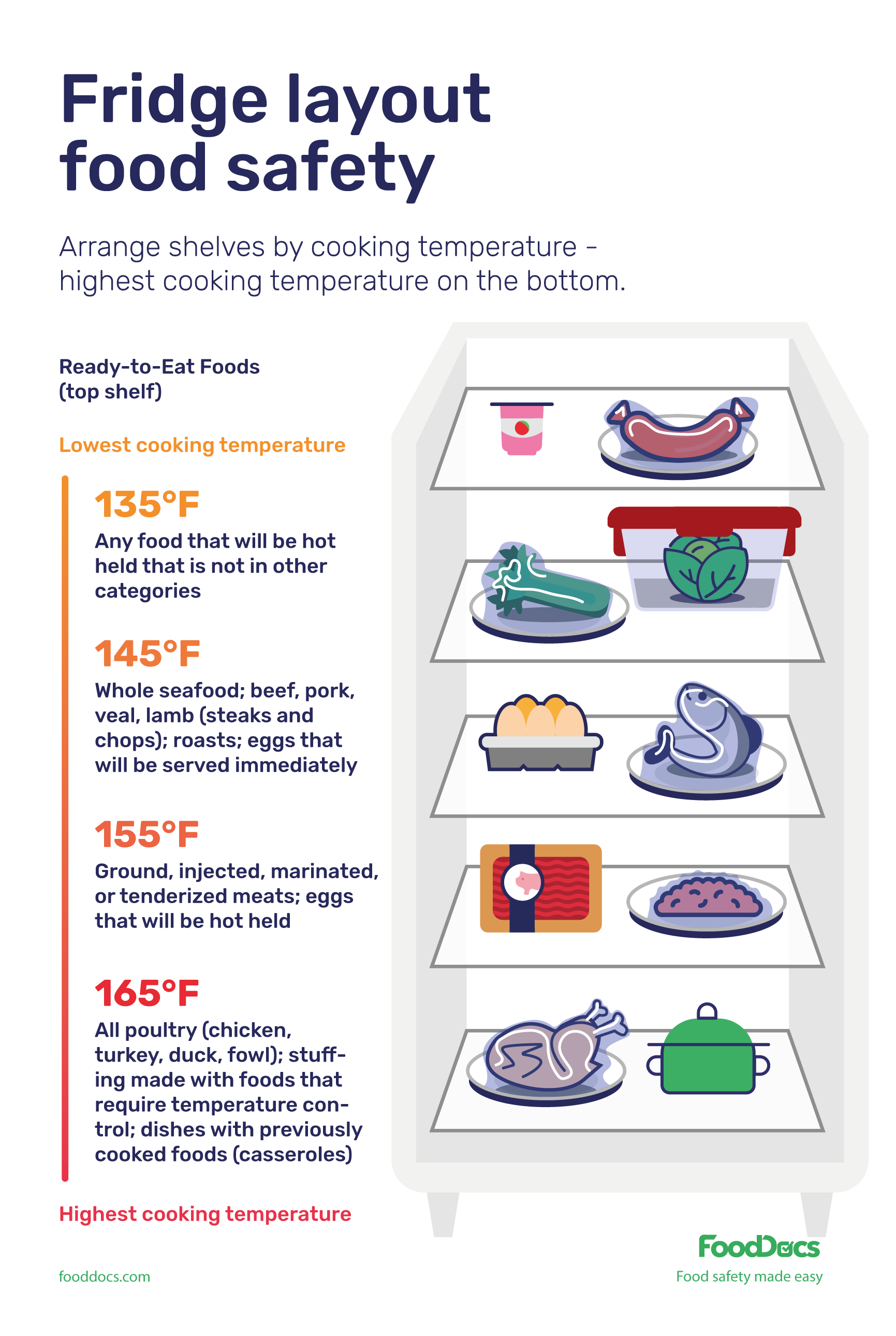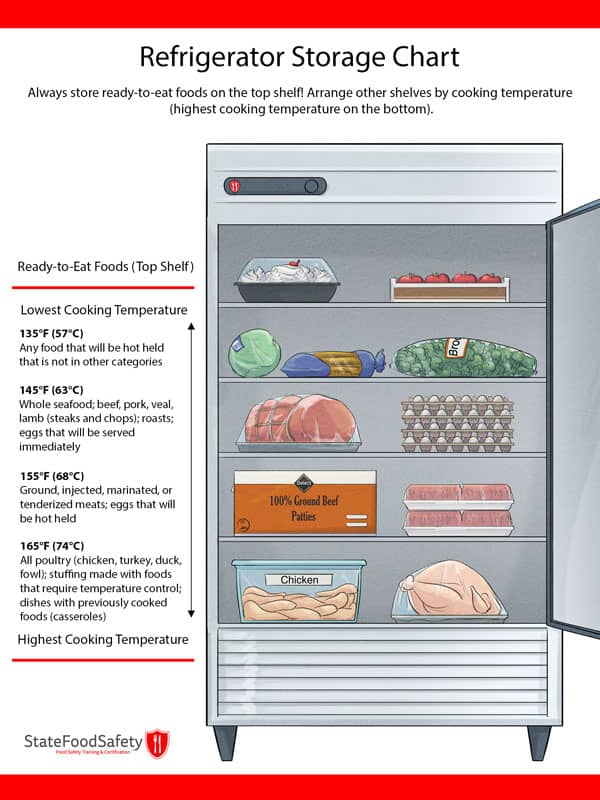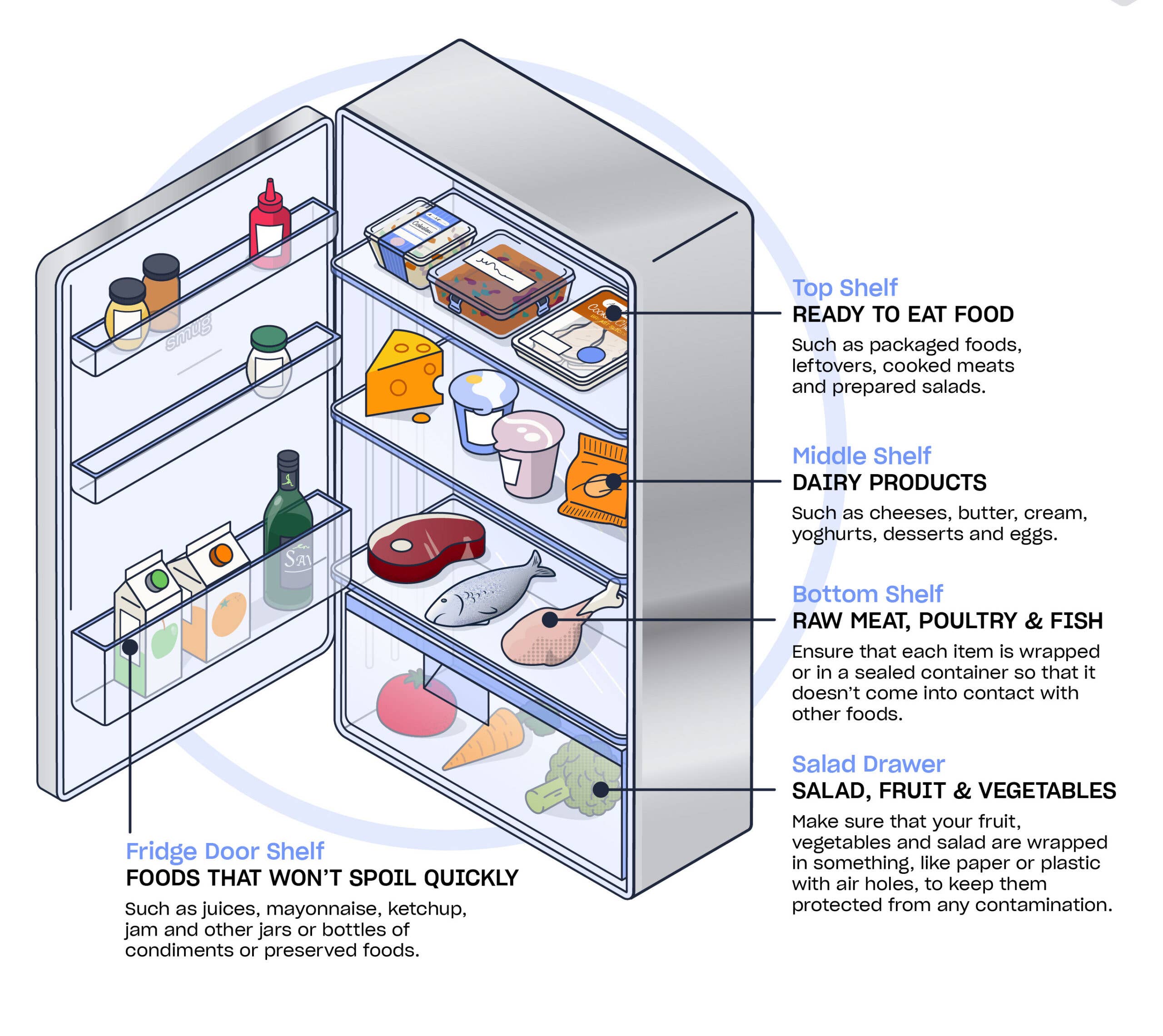Eggs should not be left outside the fridge for more than two hours. Room temperature can cause bacteria to grow rapidly.

Eggs are a staple in many households and are used in various recipes. Proper storage is crucial to maintain their freshness and prevent foodborne illnesses. Storing eggs in the refrigerator slows down bacterial growth, ensuring they stay safe to consume.
Understanding how long eggs can be safely left out of the fridge is essential for maintaining their quality. Room temperature can accelerate the growth of harmful bacteria like Salmonella. Following recommended storage guidelines can help keep your eggs fresh and safe for consumption. Always prioritize food safety to protect your health and that of your family.
Importance Of Egg Storage
Proper egg storage is crucial for maintaining quality and safety. Eggs can spoil or become contaminated if not stored correctly. Understanding the importance of proper storage can help prevent foodborne illnesses and preserve the eggs’ nutritional value.
Health Risks
Eggs left out of the fridge can harbor harmful bacteria. The most common bacteria found in eggs is Salmonella. This bacteria can cause severe food poisoning. Symptoms include stomach cramps, diarrhea, and fever. Ensuring eggs are stored correctly reduces these health risks.
Nutritional Impact
Improper storage affects the eggs’ nutritional content. Eggs left out too long lose essential vitamins and minerals. Storing eggs in the fridge helps maintain their nutritional value. Fresh eggs provide protein, vitamins A, D, and E, and several B vitamins.
| Storage Method | Impact on Nutrients |
|---|---|
| Refrigerated | Keeps nutrients intact |
| Left Out | Nutrients degrade |
- Store eggs in the fridge to keep them safe.
- Refrigeration slows down bacteria growth.
- Maintains eggs’ vitamins and minerals.
- Place eggs in the fridge soon after purchase.
- Keep them in their original carton.
- Store them in the coldest part of the fridge.

Credit: www.fooddocs.com
Ideal Storage Conditions
Eggs are a staple in many households. To keep them fresh and safe, you need to store them properly. Ideal storage conditions are key to maintaining their quality and safety.
Refrigeration Benefits
Refrigeration keeps eggs fresh for a longer time. The cold temperature slows down the growth of bacteria. Fresh eggs can stay good for up to five weeks in the fridge.
- Slows Bacteria Growth: Cold temperatures inhibit harmful bacteria.
- Extends Freshness: Eggs remain fresh for weeks when refrigerated.
Refrigerated eggs also retain their nutrients better. This ensures you get the most out of your eggs.
Temperature Control
Maintaining the right temperature is crucial. The fridge should be set at 40°F (4°C) or lower. Consistent temperature prevents spoilage and bacterial growth.
| Temperature | Effect on Eggs |
|---|---|
| Above 40°F (4°C) | Increased risk of bacteria |
| At 40°F (4°C) or lower | Optimal freshness and safety |
Store eggs in the main part of the fridge. Avoid keeping them in the door, where temperatures fluctuate.
Eggs Left Out: Time Limits
Understanding how long eggs can be left out is crucial. It helps in maintaining their freshness and safety. Eggs are a staple in many households, so proper storage is essential.
Room Temperature Duration
Eggs should not be left out for more than two hours at room temperature. This is because bacteria can grow quickly on eggs. The temperature range between 40°F and 140°F is known as the “danger zone.” In this range, bacteria can double in number in just 20 minutes.
If the room temperature is above 90°F, eggs should not be left out for more than one hour. This is especially important during summer months or in warmer climates.
Seasonal Variations
During colder months, room temperature is usually lower. This means eggs can be left out for slightly longer. However, it is still best to follow the two-hour rule to ensure safety.
In warmer seasons, the risk of bacterial growth increases. Always be cautious and keep eggs refrigerated to avoid any health risks.
| Season | Maximum Time Eggs Can Be Left Out |
|---|---|
| Winter | 2 hours |
| Summer | 1 hour |
Following these guidelines will help keep your eggs safe to eat. Always remember to refrigerate eggs as soon as possible. Keeping eggs in the fridge ensures their freshness and reduces the risk of foodborne illnesses.

Credit: www.statefoodsafety.com
Signs Of Spoiled Eggs
Knowing the signs of spoiled eggs can keep you safe. Spoiled eggs can make you sick. Learn how to spot bad eggs quickly.
Visual Indicators
Look at the eggshell for cracks or slimy spots. A clean eggshell is a good sign. Check for any unusual discoloration.
- Cracked Shell
- Discoloration
- Slime on Shell
Open the egg and check the egg white. It should be clear and thick. A runny egg white means the egg is bad.
Smell And Texture
A bad egg smells bad. Fresh eggs have no smell. If the egg smells like sulfur, throw it away.
Feel the egg white and yolk. Fresh egg whites are thick. Spoiled egg whites are runny. Fresh yolks are firm. Spoiled yolks are watery.
| Indicator | Fresh Egg | Bad Egg |
|---|---|---|
| Smell | No smell | Bad odor |
| Egg White | Thick | Runny |
| Yolk | Firm | Watery |
Safe Handling Practices
Ensuring the safety of your eggs requires careful handling. Safe handling practices are crucial for preventing contamination and maintaining egg quality. Follow these guidelines to keep your eggs safe.
Cleaning And Washing
Clean your hands before touching eggs. Use warm water and soap.
Avoid washing eggs right after collecting. Washing removes the natural protective coating.
Clean eggs only if they appear dirty. Use a dry cloth or sandpaper.
If washing is necessary, use warm water. Cold water can cause bacteria to enter.
Avoiding Contamination
Keep eggs away from raw meat. Use separate cutting boards and utensils.
Store eggs in their original carton. The carton helps protect against contamination.
Do not reuse egg cartons. They can harbor bacteria.
Refrigerate eggs promptly. Do not leave eggs out for more than two hours.
| Step | Action |
|---|---|
| 1 | Wash hands before handling eggs |
| 2 | Clean eggs only if dirty |
| 3 | Use separate utensils for eggs and raw meat |
| 4 | Store eggs in their original carton |
| 5 | Refrigerate eggs within two hours |
Follow these steps for safe egg handling. They help ensure your eggs remain safe to eat.
Egg Storage Alternatives
When storing eggs, the fridge is the best place. Sometimes, we need egg storage alternatives. This can be due to space issues or other reasons. Here are some great alternatives.
Freezing Eggs
Freezing eggs can extend their shelf life. This method is simple and effective. Follow these steps:
- Crack the eggs into a bowl.
- Whisk the eggs until well mixed.
- Pour the mixture into ice cube trays.
- Freeze until solid, then transfer to a freezer bag.
Frozen eggs can last up to one year. Always label the bag with the date. Thaw eggs overnight in the fridge before using.
Using Egg Substitutes
Egg substitutes are great for those with allergies or dietary restrictions. They are also handy if you run out of eggs. Here are some popular options:
| Substitute | How to Use |
|---|---|
| Flaxseed Meal | Mix 1 tbsp flaxseed meal with 3 tbsp water. |
| Applesauce | Use 1/4 cup unsweetened applesauce per egg. |
| Mashed Banana | Use 1/4 cup mashed banana per egg. |
These substitutes work well in most recipes. They are easy to find and use.
Cultural Differences In Egg Storage
Egg storage practices vary around the world. These differences can affect egg safety and freshness. Understanding these practices helps ensure you’re storing eggs properly.
European Methods
In many European countries, eggs are not refrigerated in stores. This is because European eggs undergo a different process. They are often not washed before sale. Unwashed eggs have a protective coating called the cuticle. The cuticle helps keep bacteria out and moisture in.
European kitchens often store eggs at room temperature. The belief is that the cuticle protects the egg. This method works due to the specific handling of eggs in Europe.
- Unwashed eggs with the cuticle intact
- Room temperature storage
- Shorter shelf life compared to refrigerated eggs
American Practices
In the United States, egg storage practices are different. American eggs are washed before sale. This removes the cuticle, exposing the egg to bacteria. Therefore, refrigeration is crucial.
American kitchens typically store eggs in the fridge. This method helps prevent bacterial growth. It also extends the shelf life of the eggs.
- Washed eggs without the cuticle
- Refrigerated storage
- Longer shelf life compared to room temperature storage
Understanding these cultural differences in egg storage helps you make better choices. Whether you follow European or American methods, ensure your eggs are safe and fresh.
Tips For Prolonging Freshness
Ensuring eggs stay fresh is crucial for safety and taste. Follow these tips to keep your eggs in top condition for as long as possible.
Proper Carton Use
Always store eggs in their original carton. The carton protects eggs from absorbing strong odors. It also keeps the eggs from drying out. The carton has the best storage design. It prevents eggs from breaking easily.
Benefits of Using Egg Cartons:
- Protects eggs from damage
- Reduces exposure to air and moisture
- Prevents absorption of strong odors
Regular Quality Checks
Check your eggs regularly for freshness. Perform a simple water test. Place an egg in a bowl of water. Fresh eggs sink to the bottom. Old eggs float due to air pockets inside. Discard floating eggs.
Steps for Quality Check:
- Fill a bowl with water.
- Place the egg in the water.
- Observe if it sinks or floats.
- Discard if it floats.
Inspect eggs for cracks before use. Cracked eggs spoil faster. Only use clean, intact eggs. This ensures they last longer and remain safe to eat.
Quick Tips:
- Store eggs in the coldest part of the fridge.
- Avoid keeping eggs in the fridge door.
- Keep eggs away from strong-smelling foods.
| Tip | Benefit |
|---|---|
| Use original carton | Prevents odors and damage |
| Regular water test | Ensures freshness |
| Check for cracks | Prevents spoilage |

Credit: www.highspeedtraining.co.uk
Frequently Asked Questions
How Long Can Eggs Last Unrefrigerated?
Eggs can last unrefrigerated for about two hours. After that, they risk bacterial growth and spoilage. Always store eggs in the refrigerator to maintain freshness and safety.
Can You Put Room Temperature Eggs Back in the Fridge?
Yes, you can put room temperature eggs back in the fridge. Ensure they are not out for more than two hours.
How Long Can You Leave Raw Eggs in a Hot Car?
Raw eggs should not be left in a hot car for more than 2 hours. High temperatures cause rapid bacterial growth, making eggs unsafe to eat. Always store raw eggs in a cool environment to prevent spoilage and foodborne illnesses.
Should Eggs Be Stored at Room Temperature Never in the Refrigerator?
Eggs should be stored in the refrigerator to keep them fresh and prevent bacterial growth. Room temperature storage increases spoilage risk.
Conclusion
Eggs are best stored in the fridge to ensure safety and freshness. Leaving them out can risk bacterial growth. Always check for signs of spoilage before use. By following these storage guidelines, you can enjoy eggs safely. Proper handling keeps your meals delicious and your kitchen safe.


GIPHY App Key not set. Please check settings